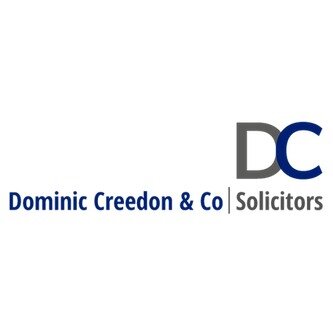Best Landlord & Tenant Lawyers in Cork
Share your needs with us, get contacted by law firms.
Free. Takes 2 min.
Free Guide to Hiring a Real Estate Lawyer
List of the best lawyers in Cork, Ireland
About Landlord & Tenant Law in Cork, Ireland
Landlord and Tenant law in Cork, Ireland, covers a wide range of issues related to the rental of residential and commercial properties. This legal framework governs the rights and responsibilities of landlords and tenants, ensuring fair practices, regulating rent increases, and addressing disputes. Both parties must be aware of their rights and obligations to maintain a harmonious rental relationship.
Why You May Need a Lawyer
While not every landlord or tenant issue requires legal assistance, there are several common situations where seeking legal help is advisable:
- Dispute Resolution: If disagreements over rent, deposits, or property maintenance arise.
- Eviction Proceedings: When a landlord needs to evict a tenant or a tenant is facing eviction.
- Lease Agreements: For drafting, reviewing, or negotiating lease terms.
- Repair and Maintenance Issues: When there are disputes over responsibilities for property upkeep.
- Unlawful Retention of Deposits: If a landlord withholds a deposit without valid reasons.
- Rent Arrears: Issues arising from unpaid rent.
Local Laws Overview
Key aspects of local laws relevant to Landlord and Tenant in Cork include:
- Residential Tenancies Act: This act regulates residential tenancies, including rights and obligations, lease termination procedures, and rent regulation.
- Rent Pressure Zones (RPZ): Cork has designated RPZs where rent increases are capped at certain rates to prevent excessive rent hikes.
- Tenancy Deposit Scheme: Landlords are required to protect tenants' deposits in an approved scheme, ensuring fair handling and return of deposits.
- Eviction Notices: Specific notice periods are mandated by law for different eviction situations.
- Support Services: Local authorities provide mediation and advisory services to assist in resolving disputes.
Frequently Asked Questions
1. What are my rights as a tenant regarding rent increases?
In designated Rent Pressure Zones like parts of Cork, rent increases are capped at a maximum of 4% annually. Tenants must be given proper notice of any rent increase.
2. How much notice do I need to give if I want to end my tenancy?
The notice period depends on the duration of the tenancy. For example, if you have been renting for less than six months, a 28-day notice is required. Longer tenancies require more extended notice periods up to 112 days.
3. What can I do if my landlord withholds my deposit?
If your landlord unlawfully retains your deposit, you can file a dispute with the Residential Tenancies Board (RTB), which can adjudicate and resolve such issues.
4. Are landlords responsible for property repairs and maintenance?
Yes, landlords are responsible for maintaining the property in a habitable condition and carrying out necessary repairs. Tenants should report any issues promptly.
5. Can my landlord enter the property without notice?
Landlords must give reasonable notice before entering the property and should only do so for legitimate reasons such as inspections, repairs, or to show the property to potential buyers or new tenants.
6. What should be included in a lease agreement?
A lease agreement should outline key terms such as rent, duration, tenant and landlord responsibilities, deposit details, and procedures for ending the tenancy.
7. How can I protect my deposit?
Ensure the deposit is registered with a Tenancy Deposit Protection Scheme. Document the property's condition at the start and end of the tenancy to avoid disputes.
8. Can my landlord evict me without a reason?
No, landlords must have a valid reason and follow the correct legal procedure for issuing eviction notices as outlined by the Residential Tenancies Act.
9. What should I do if I experience harassment from my landlord?
Report any harassment to the RTB and seek legal advice. Harassment from landlords is illegal and can be grounds for legal action.
10. How can I resolve a dispute amicably?
Mediation services are available through local authorities and the RTB to help resolve disputes without going to court.
Additional Resources
Here are some resources you may find helpful:
- Residential Tenancies Board (RTB): The RTB provides information, dispute resolution services, and enforces tenancy law.
- Cork City Council: Offers support and information regarding housing and tenancy issues.
- Citizens Information: Provides comprehensive information on rights and services available in Ireland.
- Threshold: A national housing charity offering advice and support to tenants.
Next Steps
If you need legal assistance in Landlord & Tenant matters, consider the following steps:
- Document Everything: Keep detailed records of all communications and issues related to your tenancy.
- Seek Initial Advice: Contact organizations like the RTB or Threshold for initial guidance.
- Consult a Lawyer: If issues persist, seek legal advice from a qualified solicitor specializing in Landlord & Tenant law.
- File a Dispute: If necessary, file a dispute with the RTB to resolve the matter legally.
Taking these steps can help protect your rights and ensure that any issues are addressed effectively and fairly.
Lawzana helps you find the best lawyers and law firms in Cork through a curated and pre-screened list of qualified legal professionals. Our platform offers rankings and detailed profiles of attorneys and law firms, allowing you to compare based on practice areas, including Landlord & Tenant, experience, and client feedback.
Each profile includes a description of the firm's areas of practice, client reviews, team members and partners, year of establishment, spoken languages, office locations, contact information, social media presence, and any published articles or resources. Most firms on our platform speak English and are experienced in both local and international legal matters.
Get a quote from top-rated law firms in Cork, Ireland — quickly, securely, and without unnecessary hassle.
Disclaimer:
The information provided on this page is for general informational purposes only and does not constitute legal advice. While we strive to ensure the accuracy and relevance of the content, legal information may change over time, and interpretations of the law can vary. You should always consult with a qualified legal professional for advice specific to your situation.
We disclaim all liability for actions taken or not taken based on the content of this page. If you believe any information is incorrect or outdated, please contact us, and we will review and update it where appropriate.














